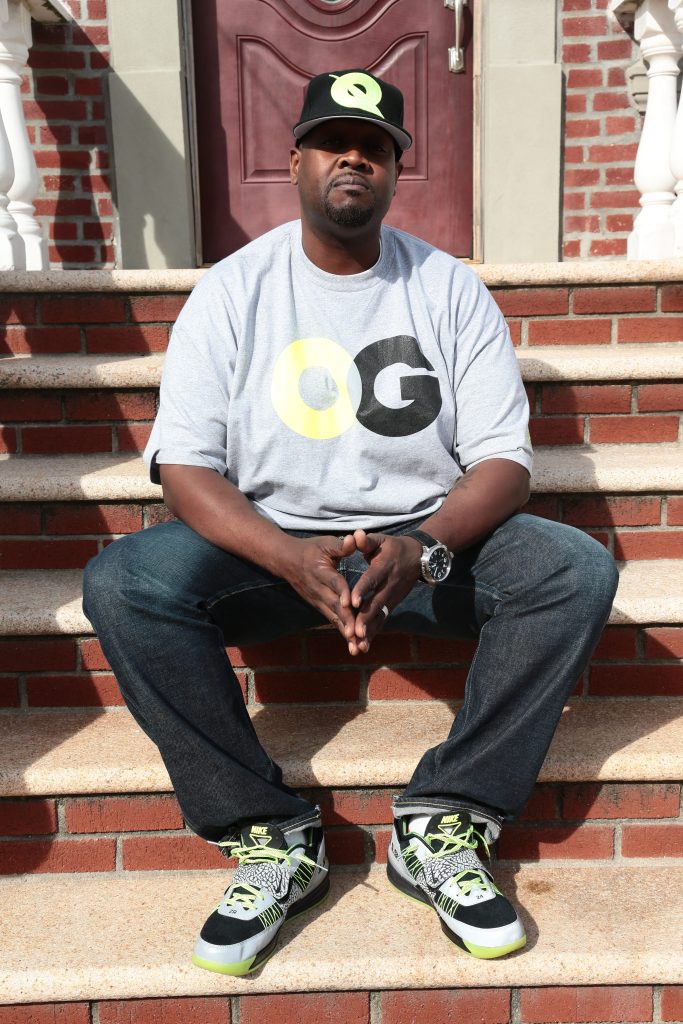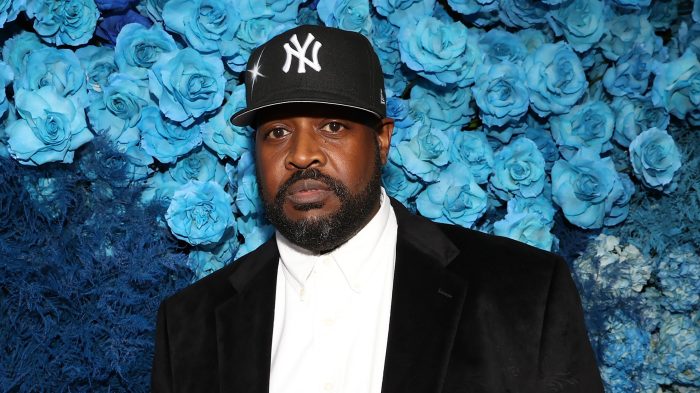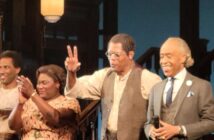A quote always comes to mind when I think of DJ Clark Kent.
“I had seen what happened with the industry and Jaz[-O] early on,” Jay-Z once said. “Without Clark pushing me to make that initial album, I don’t know where I’d be.”
Kent, born Rodolfo Franklin in Panama, passed away on October 24 after battling colon cancer for three years, according to a statement posted on his Instagram. He was 58. In a year that has already seen profound losses in hip-hop — DJ Mister Cee, Rob Stone, Rich Homie Quan, Rico Wade and Fatman Scoop to name a few — Kent’s loss hits a particular nerve given his story and the manner of his passing.
It sounds cliche to say that without so-and-so hip-hop’s story wouldn’t be the same. Yet, with DJ Clark Kent, the saying applies. First, his resume speaks for itself. His career began in the late 1980s as a DJ for Brooklyn rapper Dana Dane. He went on to be a tour DJ for the Notorious B.I.G, another Brooklynite. His first major hit as a producer came with Junior M.A.F.I.A.’s “Player’s Anthem.” The track, which was Lil Kim’s first appearance on record and one Clark would coach her through, was ironically the song Clark and crew were recording the night Tupac Shakur was shot five times in the lobby of Quad Studios in November 1994.
DJ 50 Grand’s death is a big loss for hip-hopRead now
Clark’s reach would stretch beyond Biggie’s crew. As Jay-Z confirmed, his debut LP, 1996’s Reasonable Doubt, wouldn’t have happened without Clark’s influence. He produced three songs on the album, including “Coming of Age” and “Cashmere Thoughts.” But it was “Brooklyn’s Finest,” the first of several collaborations between Jay and B.I.G., that came with a hilarious backstory Clark told several times over the years.
B.I.G. had been hearing about Clark’s “mans” Jay-Z for years but never met him, even though the pair briefly overlapped at the same high school. Clark told the story of “Who Shot Ya?” which was widely assumed to be a taunt to Tupac following the Quad studios shooting. As Clark recalled, B.I.G. recorded it as a display of lyrical dominance to Clark, who kept talking about “how nice” Jay-Z was. By the time B.I.G. heard the beat for “Brooklyn’s Finest,” he wanted to keep it for himself, but Clark said it was for Jay. The decision irked B.I.G., but he begged Clark to be on the record. When B.I.G. walked into the studio the night of the session, Jay-Z and Dame Dash (who Clark had also introduced Jay to years earlier) saw the play. After that, he and Jay-Z would speak every day for the remainder of B.I.G.’s life.
Over the years, Clark’s production game would only expand. He produced “Sky’s The Limit” on B.I.G.’s posthumous Life After Death album—the song is seen as arguably B.I.G.’s most introspective cut. Clark also produced Mariah Carey’s 2001 smash hit “Loverboy,” which was the number two song in the country. But even those hits only provide a glimpse of Clark’s deep and profound legacy.
DJ Clark Kent’s cultural fingerprint was deeply diverse. If his death is a massive blow for hip-hop, his passing is just as devastating to the sneaker world. Clark boasted one of the biggest and broadest collections known. He touted several collaborations with Nike and Adidas throughout his life because those brands understood the influence and credibility he brought. He ingrained himself as a prized figure in the culture because he loved sneakers far more than the hoopla around them. This was evident in Clark and Russ Bengston’s Quickstrike series, which aired from 2013 to 2016 on Complex TV. On the show, they turned discussing shoes and the stories around them into a science. According to Clark, he inspired Jay-Z and Dame Dash’s Nike Air Force 1s obsession in the early Rocafella Records days. Clark was known to purchase ridiculous amounts of AF1s, wear them once and discard them. Besides owning tens of thousands of kicks, perhaps his greatest legacy in the sneakers space is how much he shared with fans. He routinely gave away shoes to kids and homeless shelters. The scavenger hunts he held all around New York City became a Clark Kent staple.
 A well-known sneakerhead, DJ Clark Kent poses in Brooklyn, NY in 2013 while showing off his collaboration with Nike.
A well-known sneakerhead, DJ Clark Kent poses in Brooklyn, NY in 2013 while showing off his collaboration with Nike.
Thomas Iannaccone/Footwear News
Clark was exclusive in his talent and passions but inclusive in bringing people along. That, amongst many reasons, made him the force he was — and truthfully always will be. Still, there’s the sobering reality of how Clark passed. Per the American Cancer Society, colon cancer impacts the Black community at significantly higher rates than any other group. Black men and women are roughly 20 percent more likely to get colon cancer and 40 percent more likely to die from it than other ethnic groups. DJ Clark Kent, like Chadwick Boseman, Clarence Williams III, and even my uncle, is now one of those unfortunate statistics. Clark battled in private and celebrated in public for the last three years. Even as the heinousness of the disease ravaged his body, it never derailed what he brought to the culture simply by showing up. There’s a reason that negativity and Clark Kent never truly lived in the same airspace. The energy he brought to hip-hop, to sneakers — to every room he stepped in — was warmth and camaraderie.
Days after we learned about his passing, tributes continue to pour in, as they should. What DJ Clark Kent brought to the world now feels different—a little bit less bright and a little bit less innovative. Living in a world without Clark hurts, but knowing he’s no longer in pain is a tiny dose of spiritual medicine.
Saying Clark died “too soon” is too easy, almost necessary. In part because it’s a coping mechanism. We all use it to make a sense of tragedy. But Clark Kent’s passing is another reminder that death is morality’s tailor. It always puts life into perspective, reminding us we’re all on borrowed time. Clark was lovingly known as “God’s Favorite DJ,” and now he’s beside Him. Even beyond the grief that comes with an irreplaceable cultural loss is the beauty that we had DJ Clark Kent in our lives — and, more importantly, appreciated him while he was with us — in the first place.
Justin Tinsley is a senior culture writer for Andscape. He firmly believes “Cash Money Records takin’ ova for da ’99 and da 2000” is the single most impactful statement of his generation.



